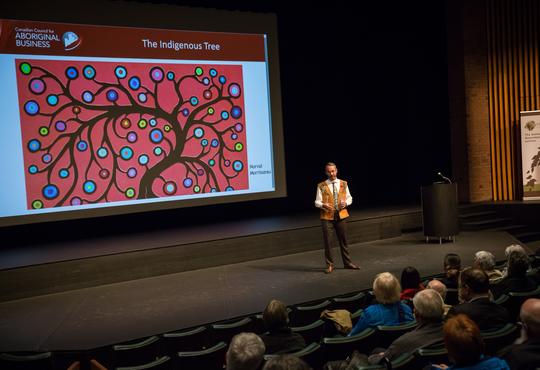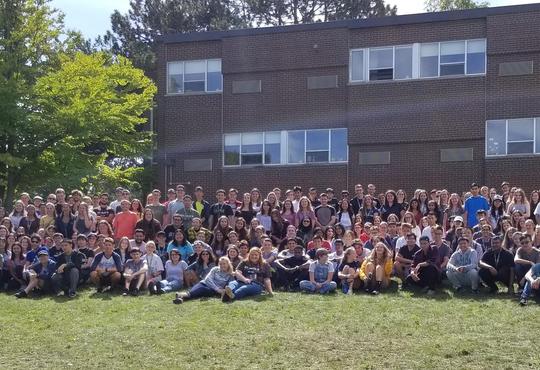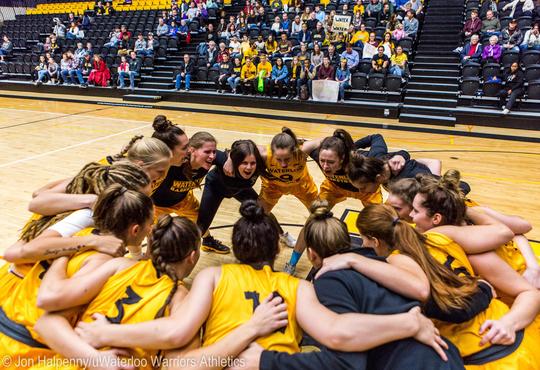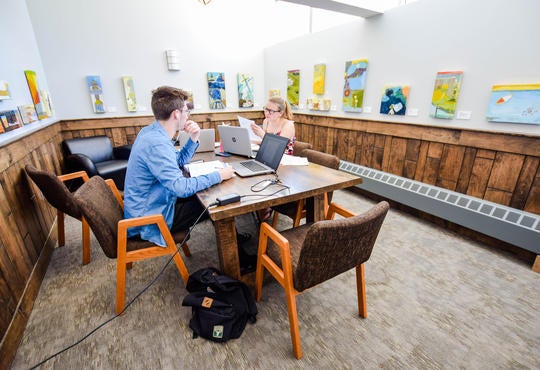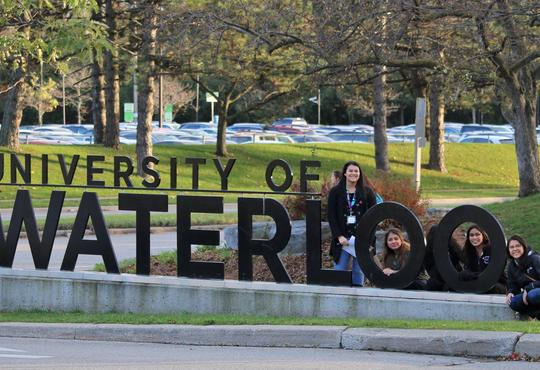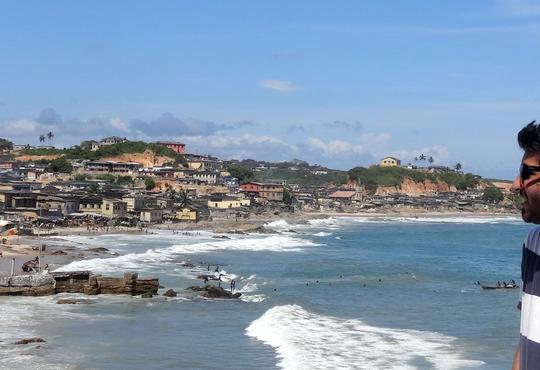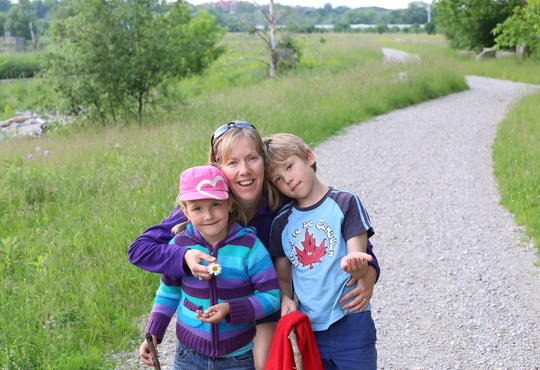In a classroom at St. Paul’s, the audience listened as history came to life.
Bill Groat described how, at six months old, he was taken from his home and placed in foster care. Seven years later, he was returned to his biological parents, who were themselves damaged by their experiences in the residential school system.
Bill is a survivor of the Sixties Scoop that saw some 20,000 Indigenous children removed from their families and placed in white foster homes. By sharing his story, Bill sparked connections between himself and his listeners. After the lecture, an older man in the audience shared that he too grew up deprived of his Indigenous identity. And a student commented that when Bill spoke about the negative stereotypes he’d endured, he felt his own experiences had been understood.
The conversations between Bill and the people his story touched are deep and meaningful. And they’re part of a much wider dialogue taking place across St. Paul’s. Indigenous and non-Indigenous students, staff, faculty and administrators are seeking to understand each other, to build relationships and to work toward reconciliation. In the process, they’re inviting people far beyond the College’s boundaries to be part of the conversation, too.
The courage to change
Understanding isn’t just important between individuals; it’s equally important for groups, organizations and even countries.
In 2015, the Truth and Reconciliation Commission (TRC) provided 94 calls to action to help achieve “a mutually respectful relationship between Aboriginal and non-Aboriginal peoples in this country.”
For JP Gladu, President and CEO of the Canadian of Council for Aboriginal Business and St. Paul’s Chancellor, those connections are vital for economic reconciliation, where Indigenous people have the same opportunities to create and enjoy wealth as other Canadians.
At the College’s 2019 Stanley Knowles Humanitarian Service Lecture, JP spoke about the reciprocity that marked the early days of the fur trade, when Europeans depended on Indigenous people to supply valuable pelts.
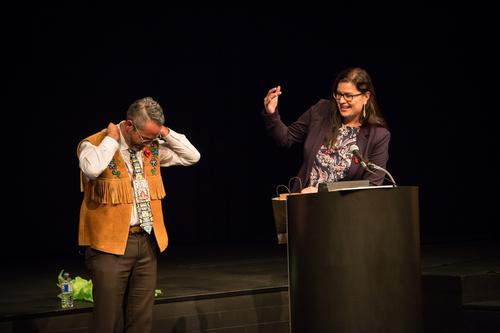
Lori Campbell presents JP Gladu with beaded medallion custom made by Alumnus Emma Rain Smith following the 2019 Stanley Knowles Humanitarian Service Lecture
He explained how corporations, led by the natural resources sector, are now re-discovering the importance of respectful partnerships with First Nations, Inuit and Métis peoples. And together, they’re creating wealth that benefits not just the companies, but Indigenous communities and the Canadian economy as well.
But many companies are uncertain where to start. That’s why the CCAB launched Progressive Aboriginal Relations (PAR), a certification program that confirms corporate performance in Aboriginal relations. The program provides a step-by-step pathway for companies that want to begin working with Indigenous businesses; more than 100 corporations, including Suncor, BC Hydro and Scotiabank have already attained the highest level of certification.
Whether we are individuals or corporations, JP says, “it takes courage to change. We get that courage by learning.”
Opening a door for dialogue
For many people at the University of Waterloo, finding the courage to change begins at Shatitsirótha' Waterloo Indigenous Student Centre (WISC). Housed at St. Paul’s, the Centre is a hub for Indigenous learning.
“First and foremost, the Centre provides a sense of belonging and cultural and academic support for our Indigenous students,” says Lori Campbell, a Two-Spirit Cree-Métis who is Director of the Centre. “But an extension of that is the teaching we do in the broader campus community and across the Region of Waterloo to build connections between Indigenous and non-Indigenous people.”
WISC offers many ways of teaching, both academic and cultural. But the emphasis is always on learning by doing, whether it’s through interactions with guest speakers like Bill in an Indigenous Studies course or connecting over a meal at the Centre’s weekly Soup and Bannock lunches.
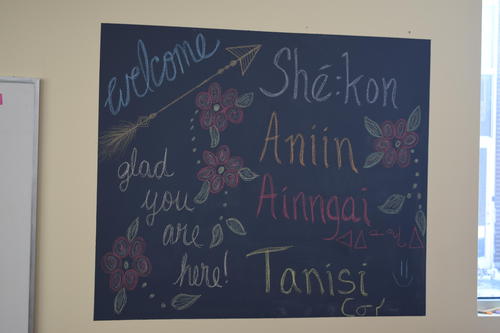
“Experiential learning is really important for reconciliation,” Lori says. “It moves us from theory to actual interaction. You can see those relationships start to form and that opens the door for dialogue, conversation and understanding each other.”
Walking the talk
“There’s a sense of responsibility at St. Paul’s around tending the relationships between Indigenous and non-Indigenous people,” Lori says.
“The College has always been there to support the WISC and I think Rick’s (Principal Rick Myers) leadership has set the tone for that. It’s leadership that walks the talk,” she adds. For example, she notes, the College allows staff and faculty to audit Indigenous Studies courses and recently offered a visit to Brantford’s Woodland Cultural Centre as a professional development activity.
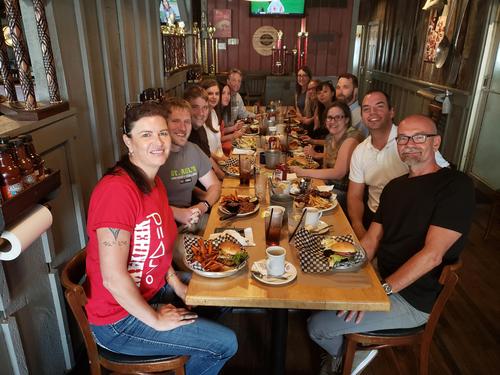
Staff and faculty who took part in the tour of the Woodland Cultural Centre discussed what they learned and how they felt over lunch.
“Those are some really proactive things that set an example that we as faculty and staff then model for all of our students here at St. Paul’s. And they, in turn, model that example to other University of Waterloo students.”
“What we do here allows us all to listen, to share our stories and our experiences. It gives us the opportunity to deepen our knowledge and our commitment to the relationship between Indigenous and non-Indigenous. I think that's something that we can really be proud of at St Paul's.”



